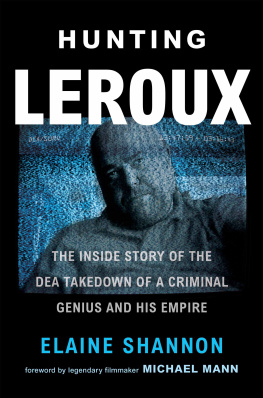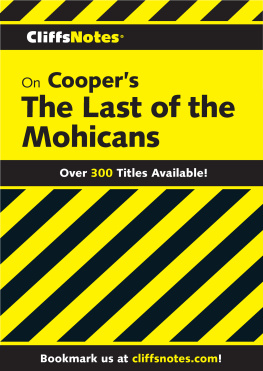Recorded Books Inc. - CliffsNotes on Hardys Far from the Madding Crowd
Here you can read online Recorded Books Inc. - CliffsNotes on Hardys Far from the Madding Crowd full text of the book (entire story) in english for free. Download pdf and epub, get meaning, cover and reviews about this ebook. City: Hoboken;N.J, year: 1973, publisher: Houghton Mifflin Harcourt;Wiley Pub, genre: Art. Description of the work, (preface) as well as reviews are available. Best literature library LitArk.com created for fans of good reading and offers a wide selection of genres:
Romance novel
Science fiction
Adventure
Detective
Science
History
Home and family
Prose
Art
Politics
Computer
Non-fiction
Religion
Business
Children
Humor
Choose a favorite category and find really read worthwhile books. Enjoy immersion in the world of imagination, feel the emotions of the characters or learn something new for yourself, make an fascinating discovery.
- Book:CliffsNotes on Hardys Far from the Madding Crowd
- Author:
- Publisher:Houghton Mifflin Harcourt;Wiley Pub
- Genre:
- Year:1973
- City:Hoboken;N.J
- Rating:5 / 5
- Favourites:Add to favourites
- Your mark:
- 100
- 1
- 2
- 3
- 4
- 5
CliffsNotes on Hardys Far from the Madding Crowd: summary, description and annotation
We offer to read an annotation, description, summary or preface (depends on what the author of the book "CliffsNotes on Hardys Far from the Madding Crowd" wrote himself). If you haven't found the necessary information about the book — write in the comments, we will try to find it.
CliffsNotes on Hardys Far from the Madding Crowd — read online for free the complete book (whole text) full work
Below is the text of the book, divided by pages. System saving the place of the last page read, allows you to conveniently read the book "CliffsNotes on Hardys Far from the Madding Crowd" online for free, without having to search again every time where you left off. Put a bookmark, and you can go to the page where you finished reading at any time.
Font size:
Interval:
Bookmark:
Copyright 1973 Houghton Mifflin Harcourt Publishing Company
All rights reserved.
www.hmhco.com
cliffsnotes.com
For information about permission to reproduce selections from this book, write to or to Permissions, Houghton Mifflin Harcourt Publishing Company, 3 Park Avenue, 19th Floor, New York, New York 10016.
The publisher and the author make no representations or warranties with respect to the accuracy or completeness of the contents of this work and specifically disclaim all warranties, including without limitation warranties of fitness for a particular purpose. No warranty may be created or extended by sales or promotional materials. The advice and strategies contained herein may not be suitable for every situation. This work is sold with the understanding that the publisher is not engaged in rendering legal, accounting, or other professional services. If professional assistance is required, the services of a competent professional person should be sought. Neither the publisher nor the author shall be liable for damages arising herefrom. The fact that an organization or website is referred to in this work as a citation and/or a potential source of further information does not mean that the author or the publisher endorses the information the organization or website may provide or recommendations it may make. Further, readers should be aware that Internet websites listed in this work may have changed or disappeared between when this work was written and when it is read.
Trademarks: CliffsNotes, the CliffsNotes logo, Cliffs, cliffsnotes.com, and all related trademarks, logos, and trade dress are trademarks or registered trademarks of Houghton Mifflin Harcourt Publishing Company. All other trademarks are the property of their respective owners. Houghton Mifflin Harcourt is not associated with any product or vendor mentioned in this book.
eISBN 978-0-544-18145-8
v1.1016
Bathsheba Everdene has the enviable problem of coping with three suitors simultaneously. The first to appear is Gabriel Oak, a farmer as ordinary, stable, and sturdy as his name suggests. Perceiving her beauty, he proposes to her and is promptly rejected. He vows not to ask again.
Oaks flock of sheep is tragically destroyed, and he is obliged to seek employment. Chance has it that in the search he spies a serious fire, hastens to aid in extinguishing it, and manages to obtain employment on the estate. Bathsheba inherits her uncles farm, and it is she who employs Gabriel as a shepherd. She intends to manage the farm by herself. Her farmhands have reservations about the abilities of this woman, whom they think is a bit vain and capricious.
Indeed, it is caprice that prompts her to send an anonymous valentine to a neighboring landowner, Mr. Boldwood, a middle-aged bachelor. His curiosity and, subsequently, his emotions are seriously aroused, and he becomes Bathshebas second suitor. She rejects him, too, but he vows to pursue her until she consents to marry him.
The vicissitudes of country life and the emergencies of farming, coupled with Bathshebas temperament, cause Gabriel to be alternately fired and rehired. He has made himself indispensable. He does his work, gives advice when asked, and usually withholds it when not consulted.
But it is her third suitor, Sergeant Francis Troy, who, with his flattery, insouciance, and scarlet uniform, finally captures the interest of Bathsheba. Troy, who does not believe in promises, and laments with some truth that women will be the death of me, has wronged a young serving maid. After a misunderstanding about the time and place where they were to be married, he left her. This fickle soldier marries Bathsheba and becomes an arrogant landlord. Months later, Fanny, his abandoned victim, dies in childbirth. Troy is stunnedand so is Bathsheba, when she learns the truth. She feels indirectly responsible for the tragedy and knows that her marriage is over.
Bathsheba is remorseful but somewhat relieved when Troy disappears. His clothes are found on the shore of a bay where there is a strong current. People accept the circumstantial evidence of his death, but Bathsheba knows intuitively that he is alive. Troy does return, over a year later, just as Boldwood, almost mad, is trying to exact Bathshebas promise that she will marry him six years hence, when the law can declare her legally widowed. Troy interrupts the Christmas party that Boldwood is giving. The infuriated Boldwood shoots him. Troy is buried beside Fanny, his wronged love. Because of his insanity, Boldwoods sentence is eventually commuted to internment at Her Majestys pleasure.
Gabriel, who has served Bathsheba patiently and loyally all this time, marries her at the storys conclusion. The augury is that, having lived through tragedy together, the pair will now find happiness.
Bathsheba EverdeneSpirited young mistress of a large farm.
Gabriel OakPatient, reliable shepherd; suitor of Bathsheba.
Mr. BoldwoodGentleman farmer enamored of Bathsheba.
Francis TroyLover and, later, husband of Bathsheba.
Fanny RobinRunaway maid.
Mrs. HurstBathshebas aunt.
Liddy SmallburyBathshebas maid.
Maryann MoneyBathshebas charwoman.
Mrs. CogganEmployed by Bathsheba.
Cainy BallYoung undershepherd to Gabriel.
Benjy PennywaysBathshebas ex-bailiff
Bill Smallbury, Henery Fray, Jacob Smallbury, and Labal TallSome of Bathshebas farmhands.
Twenty-eight-year-old Gabriel Oak was surveying his fields one mild December morning. From behind a hedge, he watched a yellow wagon come down the highway, the wagoner walking beside it. When the wagoner retraced his path to retrieve a lost tailboard, the horses halted. This delay permitted Oak to view the wagons motley array of household goods, complete with plants and pots. Enthroned atop everything sat a pretty, dark-haired young woman in a crimson jacket. Looking to make sure the wagoner was out of sight, she took out a mirror. Her smile, tentative at first, widened at her satisfying reflection. She flushed as she simply observed herself as a fair product of Nature in the feminine kind. Hearing the wagoner return, she replaced the glass.
After the two resumed their journey, Gabriel left his point of espial and followed them down the road. At the tollgate, the wagon was stopped. Unimpressed by the wagoners protest that the girl refused to pay an additional two pence, the gatekeeper would not let the wagon pass. Stepping forward, Gabriel handed two pence to the keeper, saying, Let the young woman pass. The girl glanced carelessly at him. She might have looked her thanks to Gabriel on a minute scale, but she did not speak them; more probably, she felt none.
Gabriel did not disagree with the gamekeepers comment on the attractiveness of the retreating girl. But, perhaps irked by her snub, he maintained that she had her faults, the greatest of them being what it is always... Vanity.
Far from the madding crowd was how Thomas Hardy wished us to view his beloved native country and the types who inhabited it. Thus isolation furnished both the theme and the title of the novel. Far from the Madding Crowd might well entitle his whole series of Wessex novels.
In the first paragraph, the friendly face of Gabriel Oak smiles at us. His features are average, his clothes ordinary, and his moral color was a kind of pepper-and-salt mixture. Even his idiosyncrasy is a mild one: He wears a large watch with a faulty hour hand. Undismayed, he checks the time by peering into neighbors windows or by referring to the position of the stars. Unconcerned with times passing, he leisurely continues to do what he thinks is right. He cares for his fellow beings and is capable of judging them.
Next pageFont size:
Interval:
Bookmark:
Similar books «CliffsNotes on Hardys Far from the Madding Crowd»
Look at similar books to CliffsNotes on Hardys Far from the Madding Crowd. We have selected literature similar in name and meaning in the hope of providing readers with more options to find new, interesting, not yet read works.
Discussion, reviews of the book CliffsNotes on Hardys Far from the Madding Crowd and just readers' own opinions. Leave your comments, write what you think about the work, its meaning or the main characters. Specify what exactly you liked and what you didn't like, and why you think so.



















